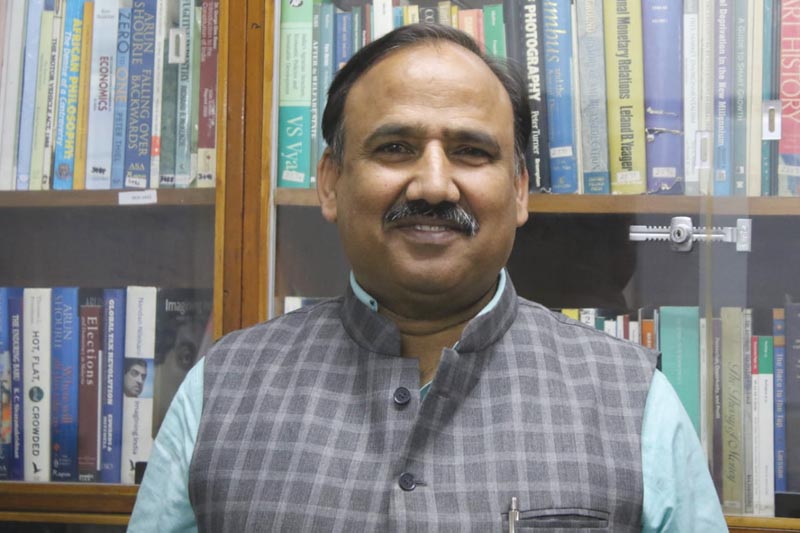 Kulbhushan Sharma
Kulbhushan Sharma
President, National Independent Schools Alliance
A commerce graduate of Punjab University, Dr. Kulbhushan Sharma is president of the National Independent Schools Alliance which has a membership of 60,000 mainly budget private schools (BPS) with an aggregate enrolment of 10 million children.
The Covid-19 crisis has majorly disrupted the education system. How has NISA responded to this challenge?
To address these challenges, NISA has started a ‘Save Education in India’ campaign. This is the time to save learning, teachers and schools. Towards this end, all our member schools are actively working with the Central and state governments.
What are the major challenges confronting budget private schools in the new Covid-19 era?
The biggest fear of BPS school promoters is maintenance of school buildings that have remained shut during the prolonged lockdown period. Moreover, school buses and vans have also been neglected throughout the lockdown. Their engines may be damaged causing huge loss to the schools. School managements should be given permission to allow drivers and cleaners to join duty so they can maintain the buses during the lockdown. Most of these vehicles have been bought on loans which have to be serviced despite the lockdown.
Several state governments have issued fees waiver/deferment circulars to private school managements. What’s your comment?
NISA has strongly opposed these circulars and directives. If BPS schools are not allowed to collect fees, the country’s K-12 education system will be severely damaged. Budget schools don’t have any other source of income to pay staff salaries. Therefore, we have insisted that there should be no fees waiver or deferment for the academic year 2020-21.
Instead, we demand that state governments should immediately release the amounts owing to BPS on account of having admitted children under s.12 (1) (c) of the RTE Act, 2009, which in some states hasn’t been paid for over three years. Secondly, tuition fees for the next six months should be paid by the Central/state government to BPS directly or to parents of children to enable them to pay school fees.
Moreover, NISA has petitioned state governments that have directed private schools not to raise tuition fees for 2020-21, to withdraw this directive. Schools have to bear expenses for infrastructure for online learning, revamp buses and vans, sanitise buildings and buses, provide masks, safety kits to children and all employees. All this will require substantial investment and capital expenditure.
What are your Top 3 proposals for reforming school education in India?
Fund students, not schools. It’s been a long-standing demand of NISA that the amount spent by government per child in government schools should be given to parents by way of education vouchers to enable them to send their children to a government or private school of their choice.
Secondly, separate school regulation, financing and delivery functions. Currently, government is the regulator, financer and provider of education. This has resulted in biased monitoring of government and private schools and lack of transparency in financing education. It is important that these three roles are separated and handled by separate entities as recommended by the draft National Education Policy 2019 report of the Dr. K. Kasturirangan Committee.
Thirdly, allow for-profit schools. Under the law, it’s mandatory for schools to be non-profit institutions. Private schools often established with large capital outlays, are also obliged to pay electricity, water, property and other charges at commercial rates. It is advisable to accord education the status of an important service industry similar to health, telecom and electricity where for-profit entities have immensely benefitted the public. NISA believes the option to choose between non-profit and for-profit models should be available to all educators and education institutions.
What are your future plans for NISA?
NISA is working intensively to save affordable private schools through our Save Education in India national campaign. This is the time to raise our voice against the neglect of government schools and call for recognition of private schools as equal contributors to K-12 education. The success of our campaign will improve the contribution of BPS to national development, and secure the future of our students and livelihoods of millions of teachers and support staff in the country’s private schools.
Also read: Leaders who can revive Indian Education – Shukla Bose


























